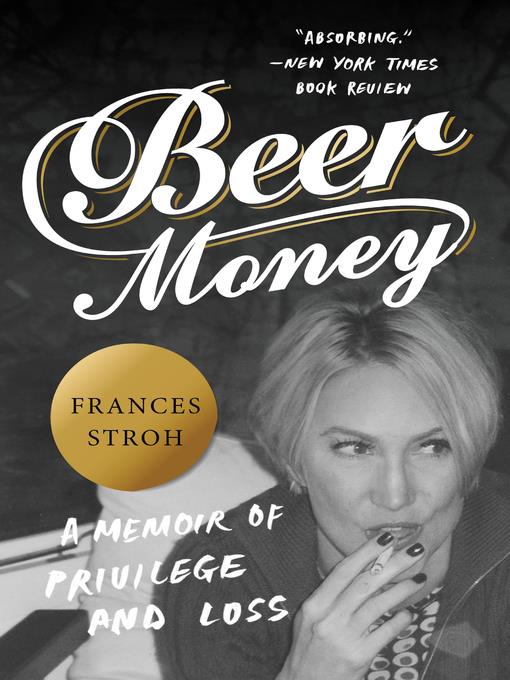
Beer Money
A Memoir of Privilege and Loss
کتاب های مرتبط
- اطلاعات
- نقد و بررسی
- دیدگاه کاربران
نقد و بررسی

February 29, 2016
Stroh, of the Stroh brewing dynasty, captures the downfall of this empire with candor and power. From 1984 to 1992, Stroh Brewery Company was named in the Forbes 400 list, and the Stroh family possessed the largest private beer fortune in America. Yet, by 1999, Miller and Pabst had bought Stroh’s entire brewing business, plunging the beer label into obscurity, and delivering the final blows to a family already torn apart by divorce, deceit, and an imprudently extravagant lifestyle. With the piercing eye of a visual artist—she devoted a piece of installation art to her family and their memories—Stroh stitches together her and her family’s stories in a series of verbal snapshots. She captures her father’s obsession with collecting and photography, her brother Charlie’s drug use and dealing, her father’s divorce and remarriage to a much younger woman, her mother’s remarriage, her father’s drinking, his decline and death in 2009, and the demise of the brewing empire. Stroh effortlessly and elegantly weaves in her own stories of sitting next to Annie Lennox in a Hare Krishna retreat center, her days at boarding school, her drug use, and her deep love and ambivalent feelings for her father. Stroh’s compelling memoir vividly portrays the aching permanence of loss and the palpability of hope that accompanies starting over.

March 1, 2016
Detroit's decadeslong public death spiral mirrors the steady dissolution of one of the city's most prominent clans: the Stroh family of brewers. Stroh, the golden-haired scion of the once-mighty Midwestern beer kings, remembers growing up under the shadow of material wealth and familial conspicuousness. Uneasy with both the brood and the money, the author sensed early on that not everything was as it seemed to be inside their tony enclave of Grosse Pointe: not the family's beer empire that, for a time, kept the money coming in and certainly not the alcoholic father who appeared more enamored with his vintage collection of guitars and guns than his children. "Once he'd come into my room while I was writing a paper and had slapped me across the face for no apparent reason," writes the author. "Later, he'd come back in, crying and apologizing. He was just drunk, he said." The anxiety that Eric Stroh, frustrated photographer and reluctant beer baron--along with an equally disconnected mother--instilled in the Stroh children portends disaster as assuredly as the decades of economic malfeasance that led to Detroit's fall. Frances, who still managed to distinguish herself as a Fulbright scholar, writes candidly and insightfully about the growing solicitude that grew inside her throughout her life. The assortment of family portraits displaying the dichotomy of smiling faces and secret hurts echoes that suffering in haunting fashion; her brother's tragic trajectory is particularly disquieting and sad. "I was finding that gaining perspective on false constructs was a far simpler feat in art than in life itself," writes Stroh. "In life, the false constructs themselves tended to take over." In the family's comfortable world, the outward appearance of abundance only masked the unsettling truth that unconditional love, much like money, sometimes comes in limited supply. The author's family might have successfully burned through a massive fortune, but they squandered a lot more than that. A sorrowful, eye-opening examination of familial dysfunction.
COPYRIGHT(2016) Kirkus Reviews, ALL RIGHTS RESERVED.

























دیدگاه کاربران